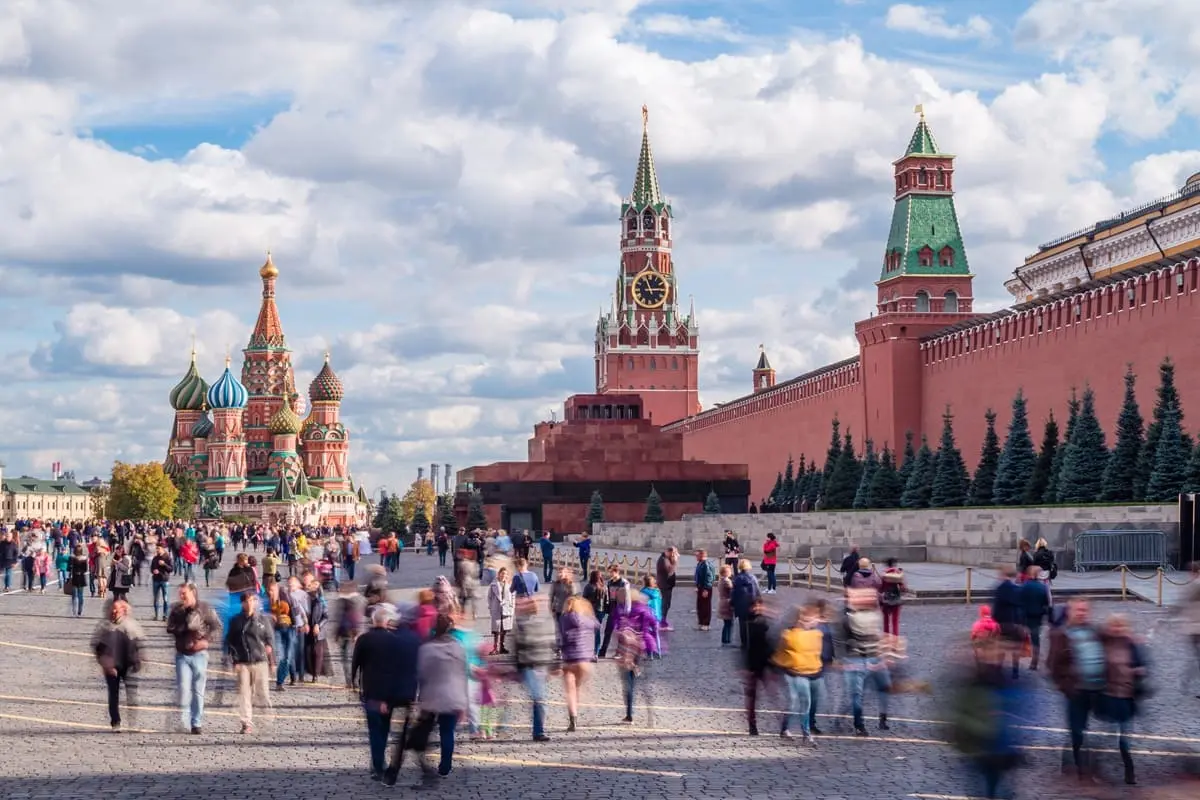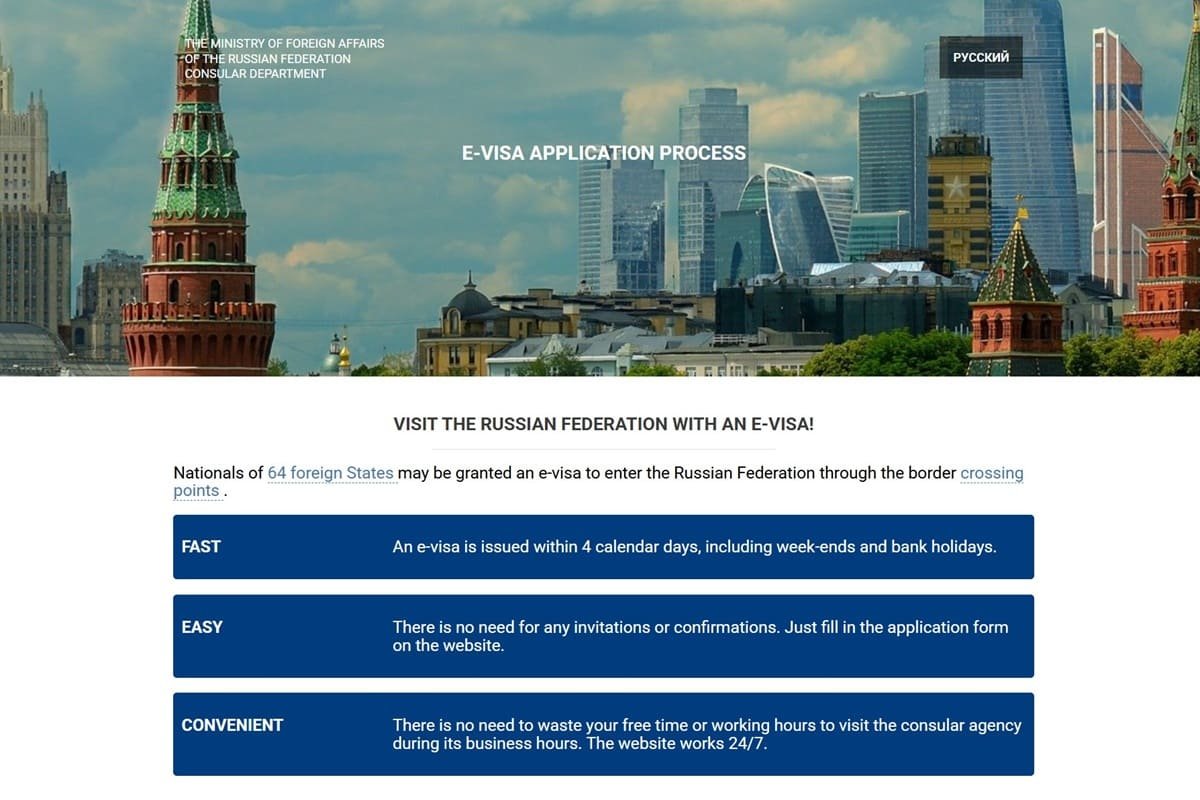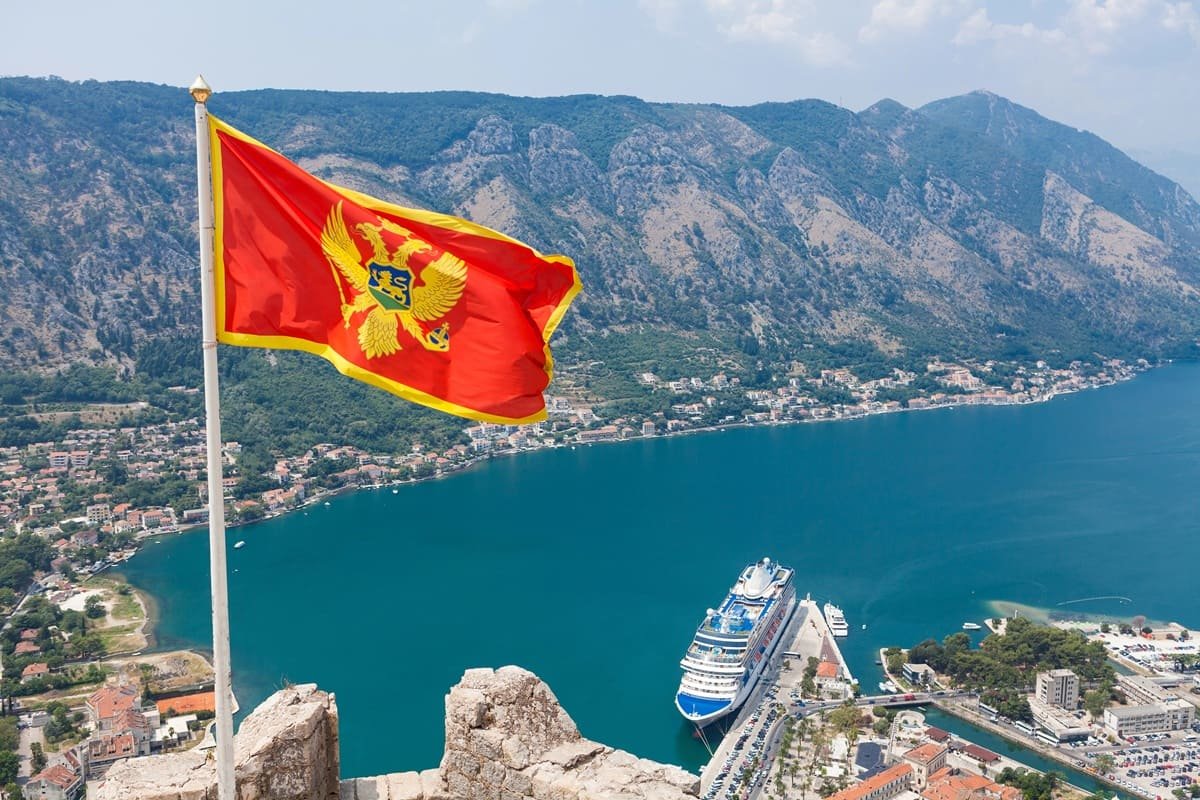Citizens of 11 new countries will soon be able to travel to Russia with an e-Visa, whose validity may soon be extended.
Over the weekend, the Kremlin announced an extension to the list of countries whose citizens can apply for an electronic visa (e-Visa) to enter Russia.
Order No. 3583-r, signed by Russian Prime Minister Mikhail Mishoustin on December 5, states that citizens of the following 11 countries will soon be able to take advantage of the simplified e-Visa system to travel to Russia:
- Barbados, Bhutan, Eswatini, Jordan, Kenya, Papua New Guinea, Saint Lucia, Tonga, Trinidad and Tobago, Turkmenistan and Zimbabwe.
At the same time, Andorra and Serbia have been removed from the list of countries eligible for e-Visa, following the signing of bilateral agreements between these two countries and Russia establishing a visa-free travel regime for their citizens.
With this update, the total list of countries eligible for the Russian e-Visa now reaches 64 countries.
64 countries eligible for Russian e-Visa
The e-Visa, relaunched on August 1, 2023, has been designed to simplify procedures for entering Russia. The main features of this system are as follows:
- Multiple uses: e-Visa is valid for tourist, business, humanitarian and private visits.
- Simplified procedures: no documents, such as letters of invitation or hotel reservations (vouchers), are required to apply for an e-Visa.
- Fast process: e-Visa issuance takes less than five days.
- Accessibility for children: visas for children under 6 are free of charge.
Applications for e-Visa must be made via the official portal of the Russian Ministry of Foreign Affairs: evisa.kdmid.ru.
Here is the list of countries and territories whose nationals can apply for an electronic visa to enter Russia:
- Austria, Bahrain, Barbados, Belgium, Bhutan, Bulgaria, Cambodia, China (including Taiwan), Croatia, Cyprus, Czech Republic, Denmark, Estonia, Eswatini, Finland, France, Germany, Greece, Hungary, Iceland, India, Indonesia, Iran, Ireland, Italy, Japan, Jordan, Kenya, Kuwait, Latvia, Liechtenstein, Lithuania, Luxembourg, Malaysia, Malta, Mexico, Monaco, Myanmar, Netherlands, North Korea, North Macedonia, Norway, Oman, Papua New Guinea, Philippines, Poland, Portugal, Romania, Saint Lucia, San Marino, Saudi Arabia, Singapore, Slovakia, Slovenia, Spain, Sweden, Switzerland, Tonga, Trinidad and Tobago, Turkey, Turkmenistan, Vatican, Vietnam and Zimbabwe.
E-Visa could soon allow stays of up to 30 days in Russia
Currently valid for 60 days, upon approval, and authorizing a stay of up to 16 days, the electronic visa could soon see its validity increased.
The Russian Ministry of Foreign Affairs recently submitted for public discussion a draft law containing amendments to the current Law 114-FZ “On the procedure for leaving and entering the Russian Federation”.
According to the document, the Russian government is considering two important changes concerning the electronic visa for Russia:
- it is proposed to extend the validity of the e-Visa from 60 to 120 days;
- the length of stay authorized under this visa could be increased from 16 to 30 days.
The bill states that a change in the number of entries is not on the agenda and that the e-Visa should, for the time being, remain a single-entry visa.
“The introduction of the changes mentioned seems timely in view of the results of the analysis of the annual monitoring of the e-Visa system (which has been operating since August 1, 2023), which shows its success and growing demand. Between August 1, 2023 and July 31, 2024, 541,000 e-Visas were issued to citizens of 55 eligible foreign countries, representing 70% of the number of visas of all other categories issued during the same period to citizens of all foreign countries combined (771,000),” explain the Russian authorities.
According to them, “this bill will help to increase the number of foreign citizens entering [our] country for tourist, business, humanitarian and visiting purposes, while maintaining the appropriate level of migration control and requirements aimed at guaranteeing the national security of the Russian Federation.”








Nice